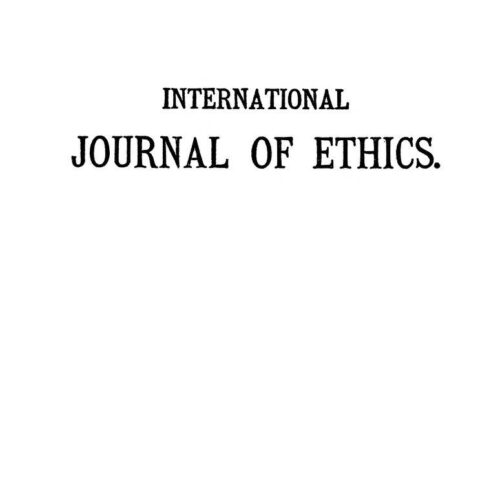

The International Journal of Ethics was founded in 1890 by leaders of the worldwide Ethical movement, ‘for the advancement of ethical knowledge and practice’. It also served as a means of disseminating information about the various ethical societies and their activities, and featured articles from a host of notable humanists. The journal still exists today, under the title Ethics, and has been published since 1923 by the University of Chicago Press.
The first issue of the International Journal of Ethics was published in October 1890, and its first article written by philosopher Henry Sidgwick, founder of the Cambridge Ethical Society. It also included pieces from Ethical movement founder Felix Adler, founder member of the London Ethical Society Bernard Bosanquet, and Ethical Religion author William Mackintire Salter.
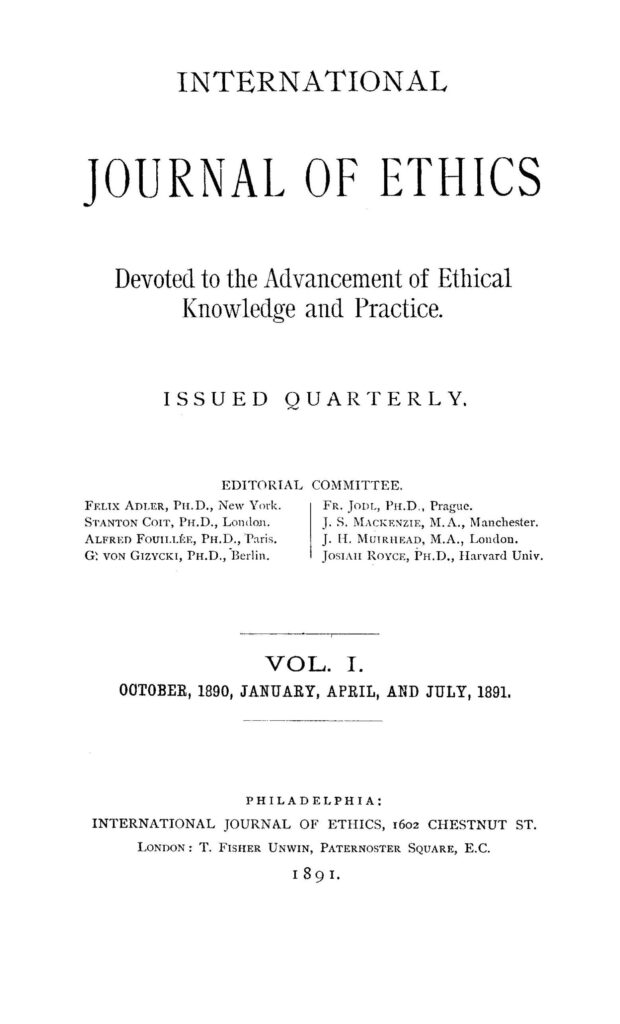
The journal’s first editor was Samuel Burns Weston, leader of the Philadelphia Society for Ethical Culture, assisted by an international editorial committee. It published articles on ethics and philosophy, as well as book reviews and discussions. Reports were also given of the ethical societies, and affiliated projects which drew on humanist principles, such as Jane Addams’ Hull House settlement in Chicago.
The International Journal of Ethics began to move away from its explicit association with the Ethical movement under the editorship of James Hayden Tufts, who took over in 1914. With associate editor John Dewey, it nevertheless became a leading philosophical journal. Dewey himself was a humanist, writing in 1930:
What Humanism means to me is an expansion, not a contraction, of human life, an expansion in which nature and the science of nature are made the willing servants of human good.
Tufts was a faculty member of the department of philosophy at the University of Chicago, and the University of Chicago Press took on the journal’s publication in 1923. In 1938, the International Journal of Ethics was renamed Ethics, under which title it continues today.
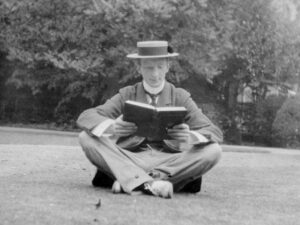
Founded in 1263, Balliol College is one of the oldest colleges at the University of Oxford. Established by the English […]
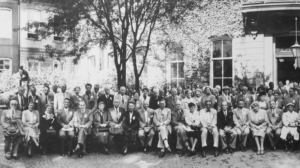
Humanists International was formed in 1952 as the International Humanist and Ethical Union (IHEU): a federation of the American Ethical […]
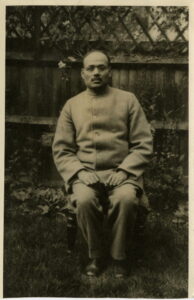
Life is a wonderful privilege. It imposes great duties. It demands the fulfilment of great tasks and the realisation of […]
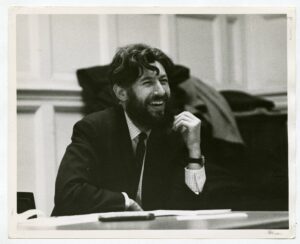
When we stand up for freedom of conscience, for the rights of the individual, for the rational approach and against […]